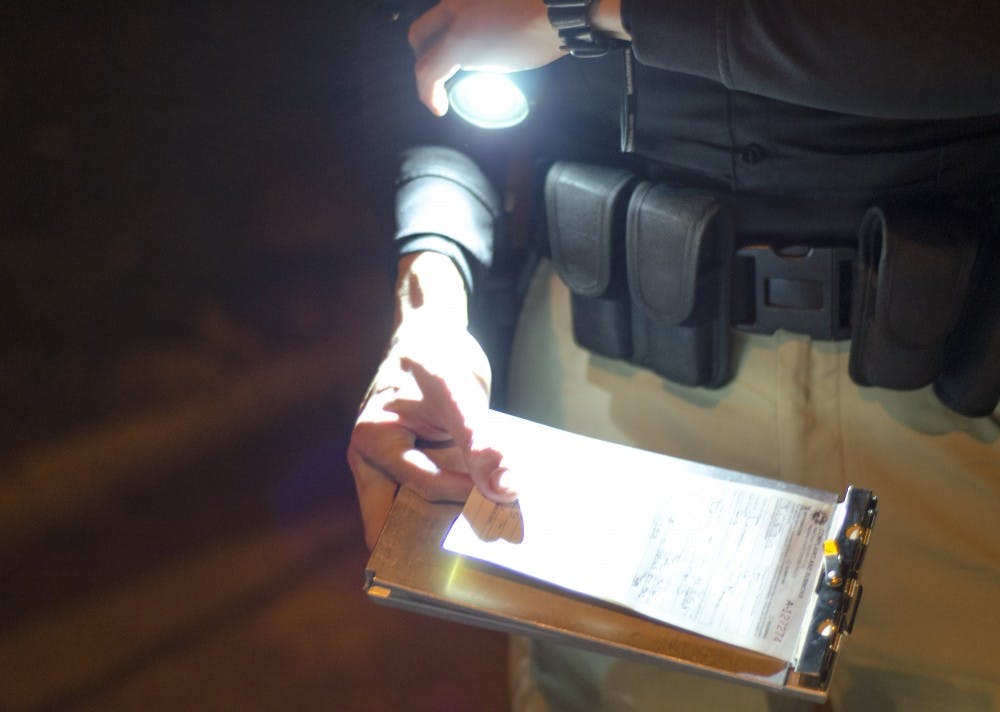An underage student looking to pass off a fake license near campus may be handing their illegal ID to a cop.
Indiana excise officers are stepping behind the counter for a revival of their Cops in Shops program, one more tactic in their push to cut down on underage drinking.
“If you are buying beverages for a minor or using false ID or trying to get beverages underage you may be trying to purchase it from an officer,” Brandon Thomas, an Indiana excise officer said.
A simple Google search will pop up several often-contradictory laws and regulations about possession and use of fake identification.
Thomas is quick to point out that simply owning a fake ID in Indiana is a class A misdemeanor which can carry a sentence of up to one year in prison and a $5,000 fine according to Indiana codes 35-43-5-2.5 and 35-50-3-2. Once a person tries to purchase alcohol with that ID an additional 60 days in prison and another $500 in fines are added on per IC 35-50-3-4.
Getting police officers inside stores instead of waiting outside to bust underage students and liquor store workers not only cuts down on illegal drinking but also helps teach clerks about what to look for on an ID.
Chris Johnson, general manager at Muncie Liquors, said he welcomes the program into his stores because it keeps out the types of customers that could result in a $500 fine for a worker if they were to miss a fake ID and serve to a minor.
He said, honestly, getting a fake and using it in a liquor store isn’t worth the investment.
“My people are well trained in what they do,” he said. “Wait ‘til you are 21, or get it somewhere else, rather than paying $100 for an ID and having it taken away the first week you try to use it.”
Liquor store workers are required to have a state license to sell alcohol which means taking a class in spotting licenses, underage patrons and the effects of over intoxication. A person must then pass a test to prove they understood the content.
Most fakes are caught in the first couple months of classes at Ball State, Johnson said, but many students, after being turned away from bars and liquor stores take their fake IDs to grocery stores or super markets where employees don’t go through the same training or oversight.
Thomas said officers are trying to counter this activity by showing up in places like CVS and Meijer to catch those students that tried to beat the system.
“I know when I started using it 6 or so years ago there were some nights where I would write up half a dozen citations for fake IDs - it was pretty rampant,” he said. “Now I may get one or two a night depending on where I am.”
That doesn’t necessarily mean there are fewer IDs out there though, he said, students may just be getting more selective about using them.
For Johnson the only way to make a real dent in curbing minors from buying alcohol is to put trained people behind the counter anywhere liquor is sold.
He said stores should put all of their alcohol in one room, like many stores used to do, and require anyone entering that room to show their ID to a licensed employee.
Despite it’s flaws Johnson said he welcomes any program that stops underage people from drinking.
“Your never going to stop underage drinking,” he said. “[But] its a deterrent for, you know, it does deter some people from trying to come in store and getting it.”





